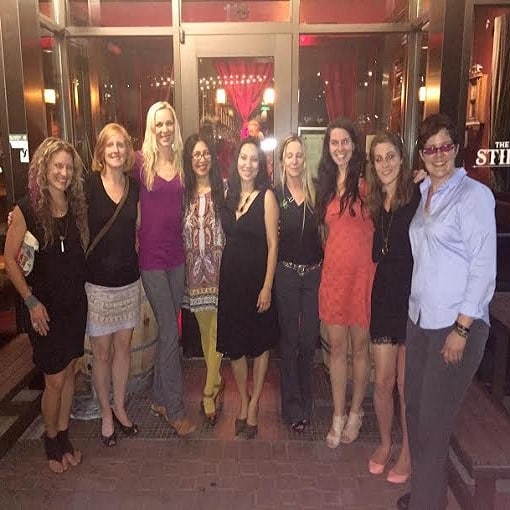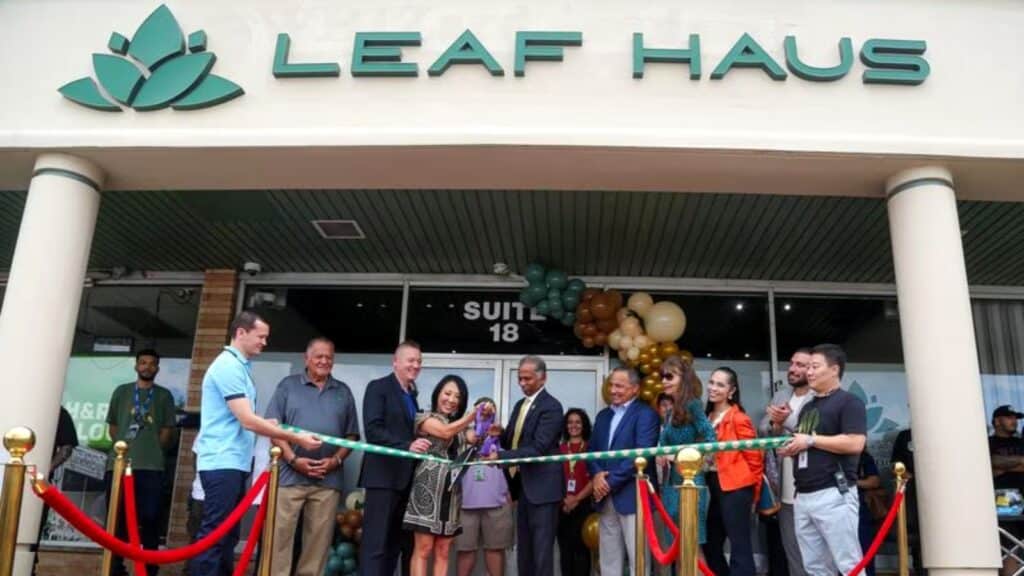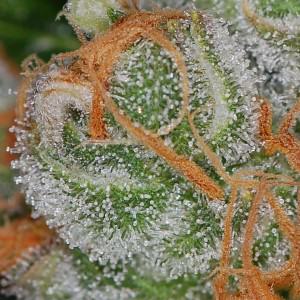 Women Grow Founders Jane West and Jazmin Hupp recognized the importance of getting women involved in building the burgeoning legal cannabis industry from the ground up, so in 2014 they started Women Grow. According to their website, this organization is now the “largest national network of cannabis professionals with monthly events for women & men in 25+ cities across the country.” Portland’s Chapter, which I’m proud to say I work with as a volunteer, is the largest one in the country. If you haven’t been to a Women Grow networking event yet, and you’re looking for a way to get connected in the cannabis community, these events are an ideal place to start. September is the first month that the Bend Chapter of Women Grow has had their monthly networking event on a different Thursday than the one in Portland, so I joined a group of ladies driving down to attend. Road tripping was a blast, and hopefully there will be a joining of our two chapters at some point for a connected event. Perhaps we’ll all caravan down south when a Southern Oregon Chapter is formed!
Women Grow Founders Jane West and Jazmin Hupp recognized the importance of getting women involved in building the burgeoning legal cannabis industry from the ground up, so in 2014 they started Women Grow. According to their website, this organization is now the “largest national network of cannabis professionals with monthly events for women & men in 25+ cities across the country.” Portland’s Chapter, which I’m proud to say I work with as a volunteer, is the largest one in the country. If you haven’t been to a Women Grow networking event yet, and you’re looking for a way to get connected in the cannabis community, these events are an ideal place to start. September is the first month that the Bend Chapter of Women Grow has had their monthly networking event on a different Thursday than the one in Portland, so I joined a group of ladies driving down to attend. Road tripping was a blast, and hopefully there will be a joining of our two chapters at some point for a connected event. Perhaps we’ll all caravan down south when a Southern Oregon Chapter is formed!
The Bend Chapter was founded by Chapter Chair Jocelyn Anderson, owner of Plantae Health in Prineville and Madras, and Lizette Coppinger, co-owner of Cannabend is Vice-Chair. They are both lovely women, passionate about connecting and empowering their peers in the cannabis industry, as well as educating the public and using their positions in the community to normalize cannabis users. Anderson, who is also a participant in the ArcView Investor Network, was excited about the opening of the new Plantae Health location in Madras. Both women are active in their community, and Coppinger has received press in the past for her fundraising efforts for the Bethlehem Inn, a homeless shelter that is near Cannabend.
Held at the Tin Pan Theater in downtown Bend, the evening began with brief presentations from a few of the Chapter sponsors. Cameron Yee from Lunchbox Alchemy spoke about their products, and also provided some scrumptious non-medicated appetizers for the event. Hunter Neuebayer, from Oregrown, spoke about the ways Oregon’s cannabis industry has created jobs in areas with struggling economies, and expressed his confidence in the fact that Oregon will be a national and international leader in the cannabis industry, which drew cheers from the crowd. Lucas and Jessica from NAEbalm spoke about the work they are doing to produce consistent, quality topicals, both cannabis infused and non-infused. I picked up a sample of their non-medicated balm and I really enjoy it. The essential oils they include are all useful for muscle relaxation, and releasing tension with aromatherapy as well.
The final portion of the event was dedicated to a panel discussion between Chris and Maria Worsley from Medicine Farm Botanicals, Trista Okel from Empower Oil, and Erin and Aaron from Sacred Herb Medicinals. All of these speakers were passionate about educating people on the benefits of their products, and keeping the quality and consistency on point to deliver reliable results. Cannabis infused topicals that are rubbed onto the skin pass through the skin, and into the muscle tissue without entering the bloodstream, which means that it won’t show up on a standard urine and blood analysis. Topicals and products that contact mucus membranes enter the body a bit differently, and when cannabis products contact these areas they will enter the bloodstream.
Erin from Sacred Herb Medicinals spoke in depth about research that she has done with their products, having patients use their medicated topicals for extended amounts of time, and then go take a blood panel to test for THC. The test came out with no THC in their system. However, she did also mention that their bath salts are decarboxylated, which means the THC is activated and there is a chance it will show up on a test when using those soaks. Trista Okel also had regular users of her product tested by urine analysis, and no THC showed up. Okel works with patients in the older population, and loves to see the stigma created by years of prohibition propaganda being lifted.
Both Okel and Maria Worsley shared ways they had been looked down upon for their cannabis use, and did not want to see others have the same judgement put upon them for their use of a plant based approach for pain relief. Worsley shared stories of growing up with her grandmother using cannabis to ease her suffering in different ways, and I thought this was an excellent example of the way women tend to pass these sorts of time-tested remedies from generation to generation. The majority of healthcare and nutrition decisions have historically been made by the women of the household, who also are often the ones taking care of sick children and family members. Maria also does her own experimentation and journaling to track the effects of not only their infused topicals, but the combination of topicals with the effects of the diet and gut health. This is exactly the kind of data that is necessary to track the efficacy of different methods for pain relief, and finding the proper dosage and therapy combinations for various ailments. It was fantastic to hear that all three of these companies have put forth a lot of effort to test and measure the effects of their products. I received samples from all three companies, and I’m excited to share my reviews with you in the near future.
The medical cannabis industry has been firmly established here in Oregon for some time now, and there are many who will be transitioning into the new recreational market. When October 1st comes around and adults 21+ years of age are able to buy 7g of flower, people without a medical card should also be able to buy topical ointments. If someone is able to use cannabis infused topicals on a regular basis and test clear of the psychoactive component THC, I absolutely believe those products should also be available in regular retail locations. There are too many people in our society dealing with chronic pain issues, and many have become dependent on opiates in order to get through their everyday lives. We’ve seen statistics in Newsweek, The Washington Post, and other publications lately showing that opiate use in states with medical cannabis sales has gone down, sometimes up to 25%, and having cannabis infused topicals more widely available may be a large step toward lowering those rates even more.




